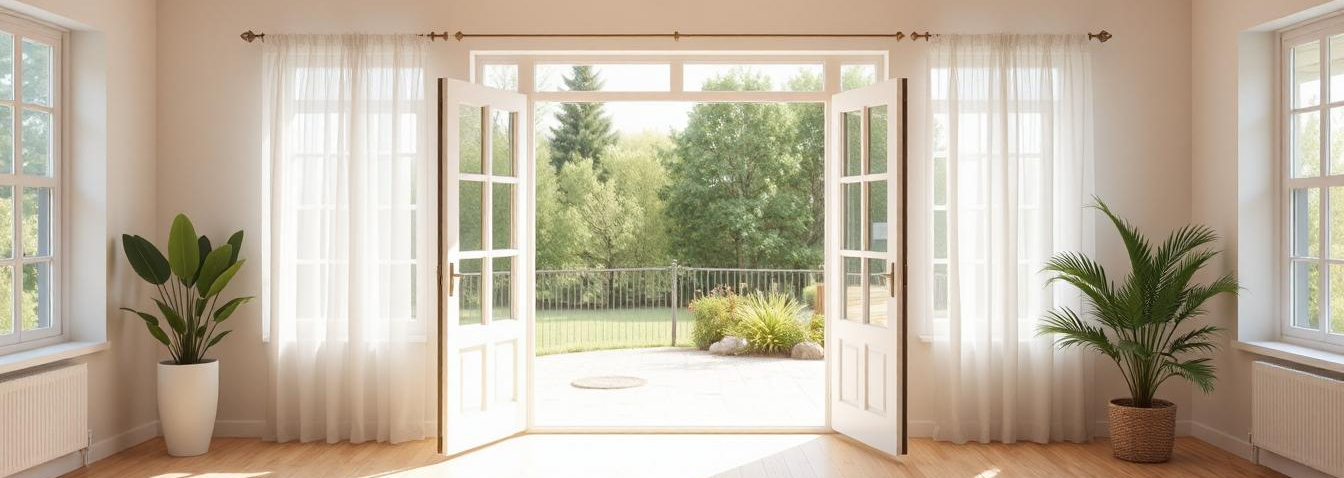The Importance of Proper Ventilation in Your Renovation
Good ventilation is often overlooked during renovations, yet it’s vital for keeping your home healthy, dry, and comfortable. Learn how proper airflow prevents mould, improves air quality, and makes your renovation last longer.

Do you ever walk into a freshly renovated room and notice a heavy or stuffy feeling in the air? Have you ever struggled with condensation on windows or that damp smell that just won’t go away? If you said yes, then you’ve experienced what happens when a home doesn’t have proper ventilation.
During renovations, it’s easy to focus on paint colours, tiles, and lighting, but airflow often gets overlooked. Good ventilation is what keeps your home healthy, comfortable, and free from moisture problems. It helps remove stale air, reduces mould growth, and improves indoor air quality for everyone living in the space.
In this article, we’ll explore why ventilation is essential during renovations and share simple ways to make sure your newly improved home feels as fresh as it looks.
Why Ventilation Is So Important During Renovations?
Proper ventilation keeps your home dry, prevents damage, and ensures everyone can breathe easily. Let’s look at why it’s such a vital part of any renovation.
- Keeps your air clean
During renovations, the air inside your home can fill up with dust, paint fumes, and chemicals from materials such as adhesives, varnish, and plaster. These particles, called volatile organic compounds (VOCs), can cause headaches, coughing, and even breathing issues.
Good ventilation helps remove these pollutants quickly. Opening windows, using fans, or installing air vents allows fresh outdoor air to replace the contaminated indoor air. That means fewer odours, cleaner air, and a healthier home environment for your family.
- Prevents moisture and mould
Many renovation activities, such as painting, plastering, or tiling, release moisture into the air. If this damp air doesn’t escape, it can lead to condensation on windows and walls, a perfect breeding ground for mould.
Mould doesn’t just look bad; it can damage walls and cause allergies or asthma. Ventilation keeps humidity levels under control by pushing moist air out and bringing in dry air. Over time, this prevents structural issues and keeps your home fresh and mould-free.
- Makes your home more comfortable
When air is trapped, rooms often feel hot, stuffy, or heavy, especially in summer. Proper ventilation keeps air moving, which helps regulate temperature naturally. It allows cool air to flow in and warm air to escape, maintaining a pleasant room temperature without relying heavily on air conditioning.
In winter, systems like Heat Recovery Ventilation (HRV) allow you to enjoy fresh air without losing warmth. The balance of temperature and airflow makes your home much more enjoyable to live in all year round.
How to Improve Airflow in Your Home?
Now that you understand why ventilation matters, here are some practical, easy ways to improve airflow in your home during and after renovation.
- Plan ventilation early
The best time to consider ventilation is during the design stage, rather than after the renovation is complete. Consult with your renovation team on the placement of vents, windows, or fans to ensure proper airflow in every space.
For example, if you’re adding insulation or sealing your home for energy efficiency, make sure there’s still a way for air to circulate. Early planning prevents issues later and creates a healthy balance between air-tightness and breathability.
- Use cross-ventilation
Cross-ventilation is a natural and straightforward way to keep your home fresh. It happens when air flows in from one side of the house and out the other.
You can create this by opening windows or vents on opposite walls or using louvres to direct airflow. Even just 10–15 minutes of cross-ventilation each day can replace stale indoor air with clean outdoor air.
- Install exhaust fans in key areas
Moisture and odours build up most in kitchens, bathrooms, and laundries. Installing exhaust fans in these spaces helps pull damp, polluted air outside before it spreads through your home.
Ensure the fan vents outdoors, not into your roof space, to prevent moisture from collecting in ceilings or walls. A good quality fan also helps prevent mirror fogging, mould growth, and musty smells.
- Add mechanical ventilation systems
For homes that are newly insulated or tightly sealed, natural airflow may not be enough. In that case, mechanical systems like HRV (Heat Recovery Ventilation) or MEV (Mechanical Extract Ventilation) are great solutions.
These systems work continuously to remove stale air and bring in filtered fresh air. HRV systems are especially energy-efficient because they recover heat from the outgoing air to warm the incoming air, keeping your home fresh and cosy at the same time.
You’ve just learned how proper ventilation can protect your home, improve comfort, and make your renovations last longer. But planning the right airflow system isn’t always simple. It requires the right design, placement, and balance between insulation and ventilation.
That’s where professional help makes a difference.
Breathe Easy with Refresh Renovations NZ
At Refresh Renovations NZ, we help homeowners plan renovations that not only look amazing but also improve indoor air quality.
Visit Refresh Renovations NZ today to learn how we can help you create a healthier home with proper ventilation built in.
Read Next
All Refresh Renovations franchises are independently owned and operated.
Processing...
Talk to a renovation consultant today
If you would like to find out how Refresh Renovations can support you with a high quality, efficient home renovation, get in touch today. Your local Refresh consultant will be happy to meet with you for a free, no obligations consultation.









logo.jpg)
.jpg)

